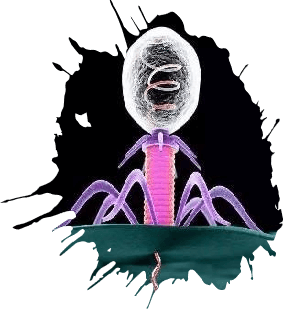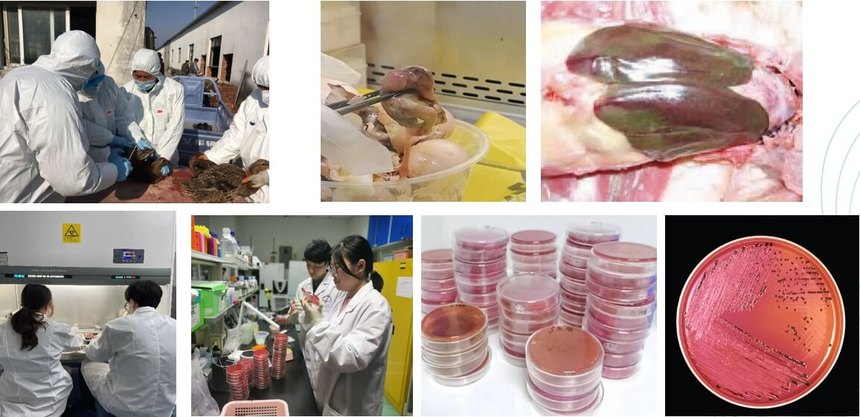How to Effectively Control Salmonella in Chickens

For any poultry producer, the term Salmonella in chickens carries significant weight. It represents a persistent challenge that threatens not only the health and productivity of a flock but also holds profound implications for public health and the reputation of the entire food industry. As consumers and regulators demand safer food and reduced antibiotic use, the pressure to effectively control Salmonella in chickens has never been greater.
Traditional methods have provided a line of defense, but they are no longer enough. This guide will delve into the full scope of the Salmonella problem and introduce a cutting-edge, natural technology that is revolutionizing how we approach this critical food safety issue.
The Dual Threat of Salmonella in Chickens
Salmonella is a resilient bacterium that can colonize the intestines of poultry. The danger lies in its dual nature.
1. The Threat to Public Health
The primary reason Salmonella in chickens is such a major concern is its zoonotic potential. This means it can be transmitted from animals to humans, typically through the consumption of contaminated meat or eggs. Human salmonellosis can cause severe gastrointestinal illness, and in vulnerable populations, it can be life-threatening. A single outbreak linked to a farm can have devastating consequences for public trust and brand integrity.
2. The Threat to Farm Productivity
While often asymptomatic, a high load of Salmonella in chickens can lead to:
Reduced feed efficiency and slower growth rates.
Increased susceptibility to other diseases.
Lower egg production in layers.
Condemnation of carcasses at the processing plant.
These factors quietly eat away at a farm's bottom line, making effective Salmonella control an economic necessity.
The Weakening Wall: Limitations of Traditional Methods
Historically, the fight against Salmonella in chickens has been waged on three fronts:
Biosecurity: This is the bedrock of prevention. Strict sanitation, pest control, and controlled farm access are non-negotiable. However, even the best biosecurity can be breached, and once Salmonella enters a facility, it can be incredibly difficult to eradicate from the environment.
Vaccination: Vaccines can be a useful tool to reduce bacterial shedding and colonization, but they often provide protection only against a limited number of Salmonella serotypes. With over 2,500 serotypes known, vaccine protection can be incomplete.
Antibiotics: While useful for treating clinically ill birds, the routine use of antibiotics for controlling Salmonella has contributed directly to the global crisis of antimicrobial resistance (AMR). Many Salmonella strains are now resistant to multiple antibiotics, rendering them ineffective. Furthermore, antibiotic use requires strict withdrawal periods and faces growing consumer opposition.
These limitations make it clear: a new, smarter strategy is needed.
The Future is Specific: Bacteriophage Technology
Imagine a solution that specifically targets and destroys Salmonella bacteria, leaving all beneficial gut microbes untouched. A solution that is natural, leaves no residues, and is effective against even the most resistant strains. This is the reality of bacteriophage technology.
Bacteriophages (or "phages") are naturally occurring viruses that are predators of bacteria. They are the most abundant life form on the planet and have evolved for one purpose: to hunt and eliminate specific bacterial strains.
Here's the simple yet brilliant mechanism:
Target and Inject: A phage identifies its specific bacterial target (e.g., Salmonella) and attaches to its surface. It then injects its genetic code.
Replicate: The phage DNA takes over the bacterium's cellular machinery, forcing it to produce hundreds of new phages.
Destroy: The newly formed phages release an enzyme that causes the bacterial cell wall to rupture (lyse), killing the bacterium and releasing a new army of phages to continue the mission.
This process is a targeted, natural, and self-amplifying cycle of destruction against pathogenic bacteria.
A Practical Phage Solution: JIN-SHA Powder

Harnessing this technology, Yantai Jinhai Pharmaceutical has developed JIN-SHA powder (Salmonella Phage), a multi-strain phage cocktail specifically designed to combat Salmonella in chickens.
By using a "cocktail" of different phage strains, JIN-SHA provides broad-spectrum activity against the most common and dangerous Salmonella serotypes found in poultry. Its ultrafiltered formulation ensures high purity and safety.
Integrating a phage program offers compelling advantages:
Surgical Precision: Eliminates Salmonella without causing collateral damage to the gut flora, which is crucial for nutrient absorption and immune function.
Overcomes Resistance: Phages work where antibiotics fail, providing a vital tool against multi-drug resistant pathogens.
Meets Consumer Demand: As a residue-free, antibiotic-free solution, it aligns perfectly with the demands of today's "clean label" market.
Proven Results: Field studies consistently show a dramatic reduction in Salmonella counts, often to undetectable levels, within days of application.
Implementing a Phage Strategy on Your Farm
JIN-SHA, a salmonella phage product, is easily administered via drinking water or feed and can be used both preventatively and therapeutically to control Salmonella in chickens.
Preventative Program: Introducing phages to brooding chicks or on a routine monthly basis for layers and breeders helps establish and maintain a Salmonella-free environment, preventing the pathogen from ever taking hold.
Therapeutic Intervention: During an outbreak, a higher dosage can be used to rapidly reduce the bacterial load, lower mortality, and restore flock health and productivity.
Conclusion: A Safer Food Chain Starts on the Farm
The effective management of Salmonella in chickens is a cornerstone of modern, responsible poultry farming. As traditional tools face growing challenges, innovative solutions like bacteriophage technology are paving the way forward. Phages offer a safe, sustainable, and powerful way to protect flock health, ensure food safety, and meet the evolving demands of the global market. Adopting this technology is not just an investment in your farm—it's an investment in a safer food future for everyone.
Take the next step in Salmonella control. Contact Yantai Jinhai Pharmaceutical to discover how our advanced phage solutions can safeguard your operation.


